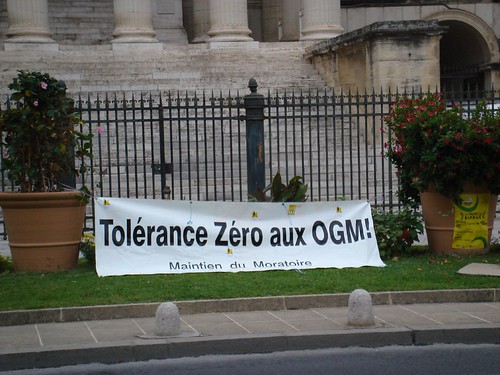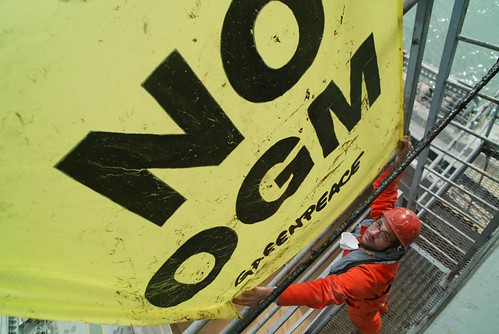Melchett speaks out against GMO's

Response: The GM debate is not about scientists versus anti-capitalists
Peter Melchett
The Guardian, February 26 2008 http://www.guardian.co.uk:80/commentisfree/2008/feb/26/food.environment
Campaigners who oppose GM food aren't vandals - they are acting in the public interest, says Peter Melchett
(This article appeared in the Guardian on Tuesday February 26 2008 on p37 of the Leaders & reply section)
Your article about the GM industry's lobbying to make its crop trial locations secret, said that there are 'fears that anti-GM campaigners are winning the battle over the controversial technology' (GM crop trial locations may be hidden from public, February 16).
But your story characterises two sides of the battle exactly as pro-GM campaigners would wish. Those who oppose GM food are described as 'protesters' engaged in 'vandalism'. In contrast, commercial interests promoting GM are described neutrally as the 'GM industry'.
This, and your special inside report (Biotech firm mans barricades as campaigners vow to stop trials, February 16), implies these pro-GM campaigners are motivated by a heady mix of scientific integrity and altruism. You report that the old industry claims of GM feeding the world are now extended to GM being 'at least part of the solution to food inflation, food security and even global warming'. The fact that these multinational chemical companies have been making these claims - that the next GM crop trial will help cure disease or feed the world by increasing yields - for at least 20 years, without this once actually happening, should induce a degree of scepticism.
The main thrust of your account of the GM industry's views - that those opposed to GM crops in Europe are part of a general anti-capitalist conspiracy - is also an old chestnut. In the 1990s Monsanto dismissed opposition to GM in Europe because they thought it came from a small minority of anti-science and anti-big business activists. In fact those early environmental concerns turned out to be shared by the vast majority of Europe's citizens. Why? Because concerns about growing and eating GM food are justified by both experience and scientific research.
Another golden oldie is the threat from pro-GM campaigners that Britain must embrace GM or lose jobs. The article says that 'fears of vandalism have forced many companies to shift their crop trials abroad', without asking whether the rejection of GM food by our citizens might have had something to do with it. In fact, opposition to GM is growing throughout the EU, especially in France and Germany, as the article itself notes.
GM trials pose a risk to the environment and to farmers growing similar non-GM and organic crops. In 1999, 28 Greenpeace volunteers, of whom I was one, removed a GM maize crop in Norfolk. You describe this as a 'protest', and that is exactly what the prosecution in our subsequent criminal trial tried, and failed, to prove. The jury found that what we did was legally remove a crop that threatened the integrity of other nearby crops, acting in the public interest. The fear of many farmers is that, once released into the environment, GM crops will spread their traits to related native plants. Once released, they can never be recalled.
The reckless abandon with which GM companies want to spread this poorly understood, inherently uncertain and potentially very dangerous technology terrifies me, and the public are right to continue to reject it.
· Peter Melchett is an organic farmer and policy director of the Soil Association.
pmelchett@soilassociation.org
Etiquetas: Melchett


<< Página Principal